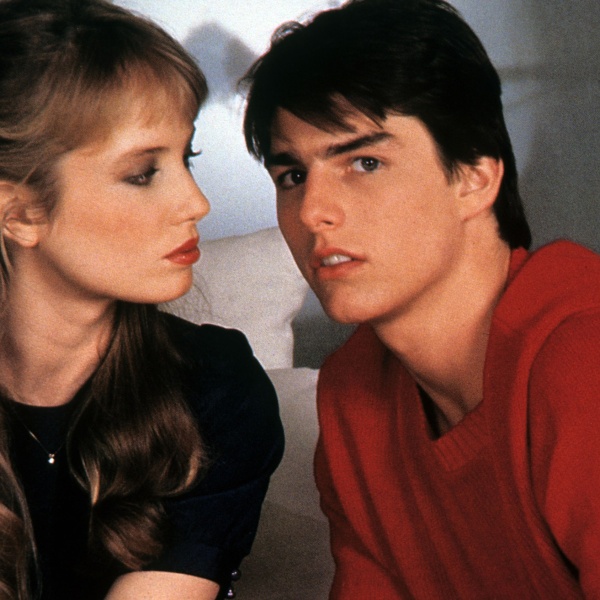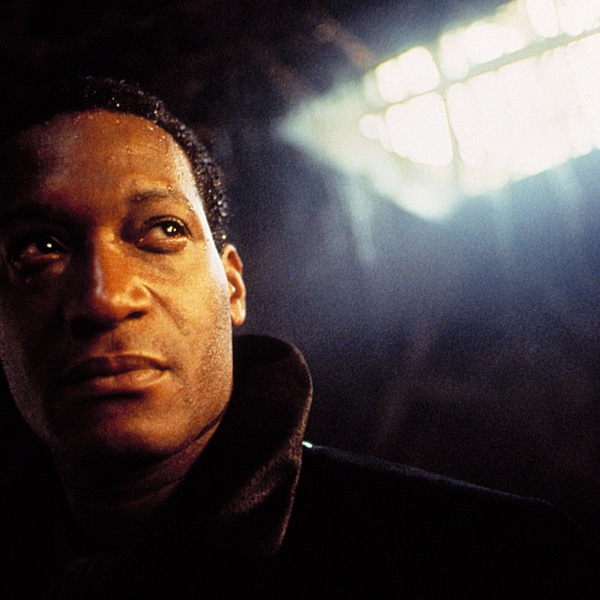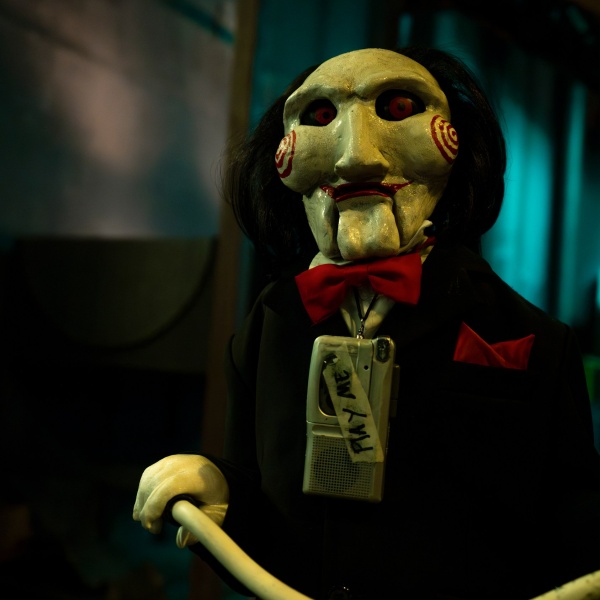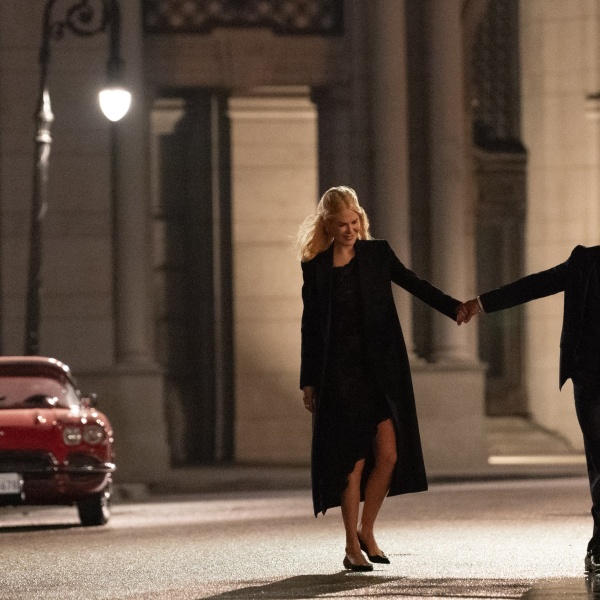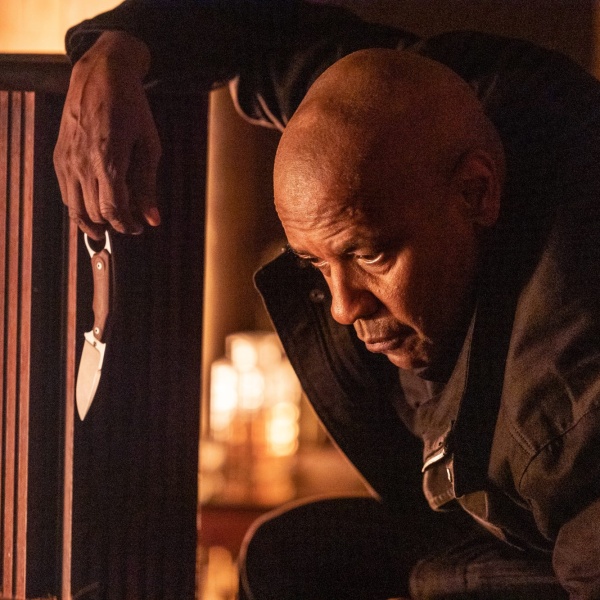
As English-language directorial debuts in the last few years go, Steve McQueen‘s “Hunger” ranks up there as one of the most uncompromising. An award-winning, sometimes controversial British artist, McQueen chose to move into feature film by examining the life of IRA hunger striker Bobby Sands, managing not to flinch from any of the grim details, using takes of up to 20 minutes in length, and showcasing a tour-de-force performance from the now firmly-planted-on-the-A-list Michael Fassbender. It picked up an enormous amount of critical support, including the Camera D’Or at Cannes in 2008, and signified both director and star as major talents to watch.
While McQueen initially flirted with a Fela Kuti biopic that was to have starred the great Chiwetel Ejiofor (which we sincerely hope will get made at some point, but the two are set to work together soon on the Brad Pitt-produced “Twelve Years a Slave“), his sophomore film instead reunites him with Fassbender for “Shame,” a New York-set portrait of sexual addiction. Another of the brightest-shining breakouts of the last few years, Carey Mulligan, joins them, for a script by British writer Abi Morgan, who’s also behind this winter’s “The Iron Lady.” Fassbender plays Brendan, a thirtysomething working in Manhattan in some unspecified financial position. He’s also a compulsively sexual creature; using hookers, picking up women from bars, masturbating in bathrooms, and continually surfing porn both at work and at home. But his lifestyle’s turned upside down when his troubled, estranged sister Sissy (Mulligan), an aspiring singer, asks to crash at his apartment for a few days.

The film’s an interesting companion piece to Fassbender’s other Venice entry, “A Dangerous Method,” both being firmly grown-up looks into sexual lives and the causes behind them. Although to call “Shame” an investigation would be a stretch; McQueen only hints lightly at the back story that Fassbender and Mulligan share, one that continues to haunt them — and it may frustrate some audience members. If you’re paying attention, it’s all in there, however — a strange flirtatious quality to the relationship, unusual comfort with each others’ bodies, for siblings — and the film is all the better for resisting any temptation to push it to the forefront.
Fassbender couldn’t be any more different here than in his performance in the Cronenberg film. He’s in virtually every frame, and it’s firmly his film, the steely blue tinge given to New York by DoP Sean Bobbitt (once more doing excellent work) seemingly picked to match and complement the Irish-German actor’s eyes. While he was all stiff repression as Carl Jung, here he’s all id, constantly pursuing some itch that he can never quite scratch. Going by the idea of orgasm as ‘la petite mort,’ a brief taste of nothingness, that seems to be part of the root of Brendan’s promiscuity — when he comes, the pain stops, if only for a second. Fassbender plays him as a man for whom sex has no positive connotations (watch his eyes light up, almost in relief, when he hears someone say, not referring to him, “I find you disgusting”); when he does connect with co-worker Marianne (Nicole Beharie), he can’t see it through, unable to link the idea of someone he genuinely likes to what he sees as the violence of sex, and the tension, the division is clear from Fassbender’s performance. But crucially, he’s deeply sad and deeply human, never shutting the audience out, which prevents the film from being as chilly as it could have been. 
Anyone expecting wall-to-wall titillation is likely to be disappointed, as the previous paragraph might suggest: there’s plentiful nudity (we half-joked on Twitter earlier about now being able to draw Fassbender’s pubic hair from memory), but McQueen mostly shies away from showing the act itself, and when it does appear on-screen, it’s at a distance, or in abstracted close-ups. Even so, almost every scene revolves around it in some degree: it’s telling that when Brendan rids himself of his porn collection, he starts to clean out his apartment entirely, disposing of his laptop, and even the contents of his fridge, at the same time.
Mulligan, who’s superb, giving a performance on the level of her previously acclaimed work, is equally damaged: desperately needy and dying for her brother to connect with her, seemingly unaware that the very sight of her has sent him into a tailspin. If that makes it sound as if the performance is a grim one, it’s anything but; the “An Education” star is as loose and lively as she’s ever been, aided by a Holly Golightly-esque wardrobe. Plus, the girl can really sing, her downtempo performance of “New York New York,” which moves her brother to tears, being one of the film’s highlights. That moment in particular shows how inextricably the two are linked, and they’re wonderful together, portraying a deeply complex sibling relationship that might be the only thing they have to cling to; as Sissy says near the close: “We’re not bad people. We just come from a bad place.”
The supporting cast — at least those not made of the unfeasibly attractive, near wordless women that Fassbender chases — are pretty flawless. “Rubicon” star James Badge Dale shows new depths as Brendan’s puppyishly creepy boss, bringing to mind a young Liev Schreiber, while relative newcomer Nicole Beharie is a real find, painting a vivid, warm picture with only a few scenes, and should go on to bigger and better things from here on out. Special mention, too, should be made of Lucy Walters, who bookends the film as ‘Pretty Subway Girl.’ It’s a wordless performance, but the newcomer turns on a sixpence from near-sexual ecstasy to deep remorse after being eye-fucked by Fassbender in transit.
That scene’s a good example of the absolute control and discipline shown by McQueen throughout, something that will come as no surprise to fans of “Hunger.” There’s no 20-minute super take, but McQueen, like almost no other filmmaker, is confident enough to frame up and let the actors work, and it’s the source of most of the film’s most memorable moments; the dinner date between Brendan and Marianne, Mulligan’s performance, a midnight jog through the streets. Not a single composition or camera movement is wasted, and if anything, it feels like McQueen is even more in command of his craft than he was before, if such a thing is possible. The music throughout is perfectly picked, both the cuts — most notably a selection of Bach compositions played by Glenn Gould — and the original music, a looming, brassy theme by rising star Harry Escott (“Shifty,” “The Arbor“).
We do however, have some reservations, which stop us from feeling that the film is the equal of McQueen’s debut. The script is mostly strong, but the climactic final reel events, while well-executed, feel like they’ve come from a cheaper piece of work. Furthermore, we were surprised at how conventionally moralistic the wrap-up felt. The final scene just about stays the right side of ambiguity, but we have to confess that we were troubled by an earlier moment, in which the peak of Brendan’s excesses takes place in a red-tinged, Bacchanalian gay club, a scene which strikes something of a sour note (unless McQueen means to suggest something larger about Brendan’s sexuality, but there’s no evidence elsewhere in the film for that). This aside, however, the film is a powerful, beautifully acted sophomore film, and more than ever, we’ll be watching what McQueen does next like a hawk. [A-]
